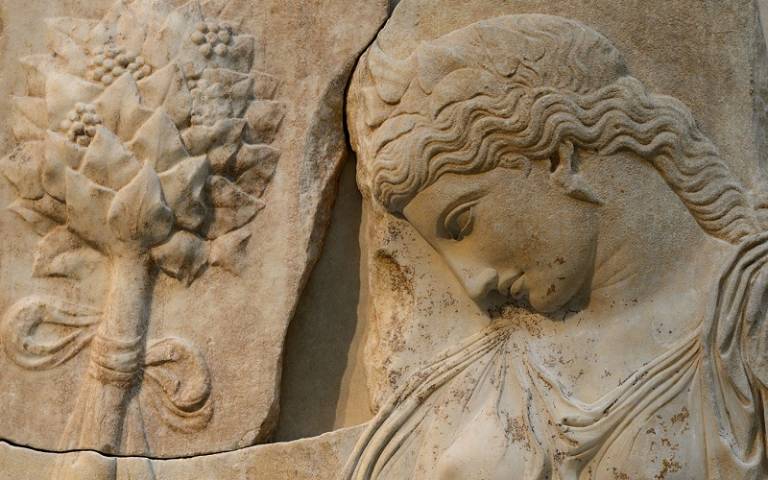VIRTUAL: A Feminist Theory of Refusal
09 June 2021, 3:00 pm–4:30 pm

We are delighted to host 'A Feminist Theory of Refusal', a round-table discussion with Professor Bonnie Honig (Brown University) at the IAS. Respondents: Barbara Goff (Reading) and Maria Tamboukou (East London)
This event is free.
Event Information
Open to
- Invitation Only
Availability
- Sold out
Cost
- Free
Organiser
-
Professor Phiroze Vasunia
This event will run on Zoom. The event is now at capacity and registration is closed.
Refusal is not the entirety of any politics, but it is a necessary part of any decent democratic politics and it is often needed by dissidents or minorities who, for no good reason, lack voice or power in current institutional arrangements. This round-table discussion explores the recent work of Bonnie Honig and especially her forthcoming book A Feminist Theory of Refusal (Harvard, 2021). The book offers an examination of three refusal concepts in political theory — inoperativity (Agamben), inclination (Cavarero) and fabulation (Hartman), reads Euripides’ Bacchae through their lenses, and then, recursively, offers “bacchae” readings of each of the concepts. Honig depathologizes the women of the Bacchae and reconsiders them in connection with contemporary Bacchaes from recent film, drama and literature.
The conference is sponsored by the Department of Greek and Latin (A. G. Leventis Fund) and the UCL Institute of Advanced Studies.
This event will run on Zoom. The event is now at capacity and registration is closed. Please do not hesitate to contact us if you need assistance on the day, and follow this FAQ link for more information and to read our virtual events code of conduct. All of our events are free, but you can support the IAS here.
Image: Marble relief with a dancing maenad. Adaptation of work attributed to Kallimachos. The Metropolitan Museum of Art, New York. Fletcher Fund, 1935.
About the Speaker
Bonnie Honig
Nancy Duke Lewis Professor of Modern Culture and Media (MCM) and Political Science at Brown University
I work at the intersection of political theory and cultural studies, focusing on received scripts that limit or launch collective action in democratic settings. What are the necessary conditions of action in concert? How do inheritances of language, imagery, history, and ideas thwart or enable the defense of just institutions, and/or help to enable emancipatory actions and imagined alternatives to current unjust arrangements?
More about Bonnie Honig Close
Close

